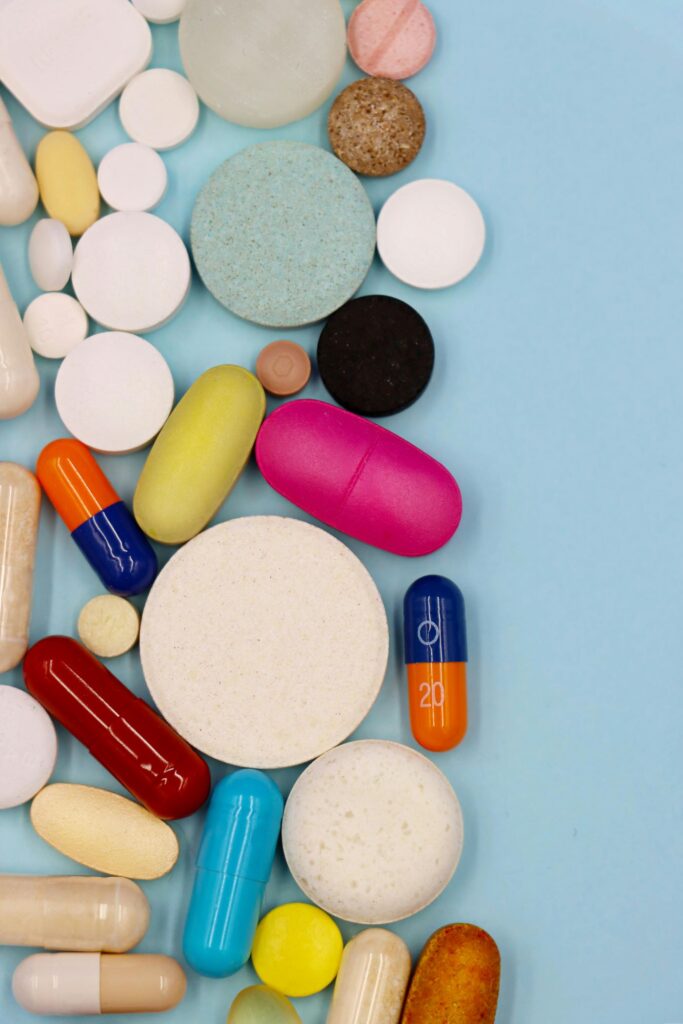Alternative Treatments
Best Alternative to Statins: Lowering Cholesterol Naturally
In recent years, the search for effective cholesterol-lowering methods has led many people to investigate alternatives to statin medicines. While statins are commonly given for cholesterol treatment, some people prefer natural alternatives.
Whether due to worries about potential side effects or a preference for holistic health practices, the hunt for the best alternative to statins has gained momentum. Fortunately, there are various natural treatments and lifestyle changes that can effectively reduce cholesterol and improve cardiovascular health.
In this article, we will look at natural cholesterol management, including alternatives to statins and how people can lower their cholesterol levels through food, exercise, supplements, and other holistic ways. Whether you want to supplement your existing treatment plan or look into other choices, this thorough guide will provide you with the knowledge and resources you need to naturally manage your cholesterol levels.

Understanding Cholesterol and Statins
Role of Statins in Cholesterol Management
Statins are a type of medication used to reduce cholesterol levels in the body. They act by blocking HMG-CoA reductase, an enzyme required for cholesterol production in the liver.
Statins, which reduce the amount of cholesterol produced by the liver, can help lower LDL cholesterol levels in blood. LDL cholesterol is sometimes referred to as “bad” cholesterol since it can contribute to plaque accumulation in the arteries, resulting in heart disease and strokes.
Potential Side Effects of Statins
While statins can reduce cholesterol levels, they are not without significant adverse effects. Some people may have muscle soreness or weakness after taking statins. This could indicate an uncommon but deadly illness known as rhabdomyolysis, which can result in muscle damage and renal failure. Other typical statin adverse effects include headaches, nausea, and diarrhea.
It is crucial to highlight that statins’ benefits generally outweigh their hazards for the majority of persons with high cholesterol. However, it is still critical to address any potential adverse effects with a healthcare physician before beginning a statin program.
In addition to statins, other options for lowering cholesterol include ezetimibe and bile acid-binding resins. These medications use different processes than statins and may be tolerated better by some people. Finally, the ideal alternative to statins will be determined by individual characteristics such as medical history, current health, and personal preferences.

Non-Statin Medication Alternatives
For those who are unable to take statins, there are numerous non-statin pharmaceutical options. These drugs help to lower cholesterol and lower the risk of heart disease.
PCSK9 Inhibitors
PCSK9 inhibitors are a relatively new family of drugs that reduce LDL cholesterol levels. These drugs act by inhibiting the protein PCSK9, which helps regulate LDL cholesterol levels in the body. By inhibiting PCSK9, these drugs can reduce LDL cholesterol levels by up to 60%.
There are now two PCSK9 inhibitors on the market: alirocumab and evolocumab. Both drugs are given as injections and are often used in conjunction with other cholesterol-lowering treatments.
Cholesterol Absorption Inhibitors
Cholesterol absorption inhibitors, like ezetimibe, prevent cholesterol absorption in the small intestine. By inhibiting cholesterol absorption, these drugs can reduce LDL cholesterol levels by up to 20%.
Ezetimibe is the most regularly used cholesterol absorption inhibitor, and it is frequently administered in combination with a statin. This drug is used orally and has been found to effectively lower LDL cholesterol levels.
Bile Acid Sequestrants
Bile acid sequestrants, like cholestyramine and colestipol, function by binding to bile acids in the intestines. This procedure limits the reabsorption of bile acids, lowering LDL cholesterol levels.
These drugs are usually used in conjunction with a statin and administered orally. While bile acid sequestrants are effective at lowering LDL cholesterol levels, they can cause gastrointestinal side effects such as constipation and bloating.
Fibrates
Fibrates, including gemfibrozil and fenofibrate, reduce triglyceride synthesis in the liver. These drugs reduce triglyceride levels, which can lower LDL cholesterol and raise HDL cholesterol.
Fibrates are often used in conjunction with statins and taken orally. Fibrates are efficient at lowering LDL cholesterol, but they can cause muscle soreness and liver damage.
Finally, non-statin drug alternatives can help lower cholesterol and reduce the risk of heart disease. However, it is critical to contact with a healthcare expert to decide the best drug selection based on your specific needs and medical history.

Lifestyle and Natural Remedies
There are several lifestyle and natural therapies that can help lower cholesterol levels in the body. These therapies can be used as a substitute for statins, particularly for people who do not handle statins well.
Dietary Changes
Dietary modifications can significantly affect cholesterol levels. A diet high in fiber, vegetables, and fruits can help lower cholesterol levels. Foods rich in soluble fiber and plant phytosterols, such as legumes, avocados, broccoli, and other fruits and vegetables, can also help lower cholesterol levels.
Fish is another food that helps lower cholesterol levels. Fish contains omega-3 fatty acids, which can help reduce inflammation and improve heart health. Eating fish at least twice a week can lower cholesterol levels.
Supplements and Herbs
Supplements and plants can also be used instead of statins. Garlic is a natural treatment that can lower cholesterol levels. Garlic supplements can help lower LDL cholesterol by up to 10%.
Red yeast rice extract is another natural treatment that can help lower cholesterol levels. This has a molecule called monacolin K, which is related to lovastatin, the active element in many statins. Red yeast rice supplements can help lower cholesterol levels.
Exercise and Lifestyle Modifications
Exercise and lifestyle changes can also help lower cholesterol levels. Regular exercise can help lower LDL cholesterol and raise HDL cholesterol levels. Exercise can also assist to reduce inflammation and improve cardiovascular health.
Lifestyle changes such as stopping smoking, limiting alcohol intake, and keeping a healthy weight can all help lower cholesterol levels.
Finally, lifestyle changes and herbal therapies can be employed instead of statins to lower cholesterol levels. Dietary adjustments, supplements, and herbs, as well as exercise and lifestyle alterations, can all assist in lowering cholesterol and improving heart health.

Emerging Therapies and Research
Novel Pharmaceutical Agents
As research continues, new pharmaceutical drugs emerge as possible alternatives to statins for cholesterol reduction. One such substance is bempedoic acid, which was recently approved by the FDA and has been found to lower LDL cholesterol levels by up to 18% when combined with ezetimibe, another cholesterol-lowering medication. Bempedoic acid inhibits an enzyme involved in cholesterol formation, and it has been shown to be beneficial in people with familial hypercholesterolemia, a genetic disorder that produces high cholesterol levels.
Genetic Research and Personalized Medicine
Another promising field of research is genetic research and personalized medicine. Researchers expect that by identifying genetic markers that lead to elevated cholesterol levels, they may be able to build individualized treatment strategies that take into consideration each individual’s genetic makeup. For example, a recent study published in the New England Journal of Medicine discovered that a genetic variant associated with lower LDL cholesterol levels was also linked to a lower risk of heart disease. This type of research could result in the creation of novel medications that target specific genetic markers, as well as personalized treatment programs according to an individual’s genetic profile.
Overall, the area of medical research is always expanding, and when new medications and treatments become available, patients with high cholesterol will have more alternatives for controlling their disease. While statins have long been the gold standard, new medicines and research provide hope for people who are unable to tolerate or benefit from statin treatment.
Conclusion
In conclusion, exploring natural alternatives to statins for lowering cholesterol can offer individuals a range of effective options to support their cardiovascular health. By adopting a holistic approach that incorporates dietary changes, regular exercise, stress management techniques, and the use of supplements, individuals can take proactive steps to manage their cholesterol levels and reduce their risk of heart disease. It’s important to work closely with healthcare providers to develop a personalized plan that addresses individual health needs and goals.
While statins remain a widely prescribed option for cholesterol management, the growing body of research on natural alternatives offers promising avenues for those seeking alternative approaches. By empowering themselves with knowledge and embracing lifestyle modifications, individuals can take charge of their heart health and enjoy the benefits of a balanced and cholesterol-friendly lifestyle.
Trusted Health, Wellness, and Medical advice for your well-being



